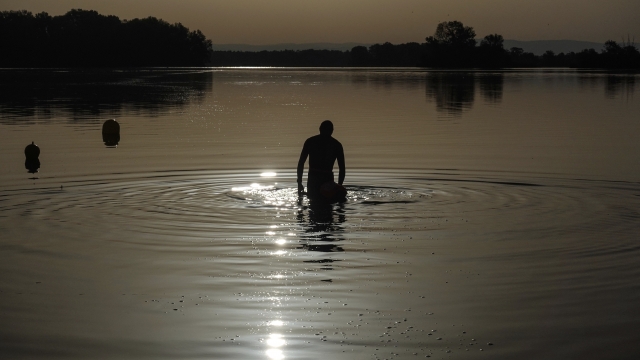With temperatures reaching the triple digits, even people who are used to working outside in Florida are feeling the heat and struggling to stay cool.
“Shade, lots of fluids — you have to keep fluids in you," said John McMillan, a Florida contractor. "Mostly water, electrolytes, you sweat so much because of the humidity and got to find the best way to cool off."
Heat alerts are covering areas in southern California, parts of the Southwest, the southern plains and parts of the Northeast. There's no relief in sight for the week.
Firefighters in Utah have been battling wildfires. They’re used to heavy gear in the heat, but they’re also watching out for each other.
"We're seeing if anyone is showing signs of heat exhaustion or excessive heat... and when that happens, you know, you've got to get yourself out of that gear, you've got to get yourself out of those clothes and get yourself some fluid," said Jon Smith, a firefighter with the North Tooele Fire Department in Utah. "The key is to drink water before you're thirsty."
Experts emphasize the importance of the right kind of hydration.
“We want to try to avoid alcohol, caffeine, and fruit juices… just because of the sugar content in it," said Emily Jewkes, with the Bear River Health Department in Utah. "We want to stick to water or sports drinks with electrolytes in it.”
In this extreme heat, officials suggest planning for access to air conditioning, either at home with a portable window unit or in other spaces. They also recommend considering battery-operated fans in case of power outages and having bottles or jugs of water on hand, especially if you’re living in a drought-prone area.
It's important to remember if it’s too hot for humans, it’s too hot for pets, so make sure they’re hydrated and cool.
Plus, it’s obviously the worst time for an air conditioner to fail, but it’s also the most likely.
"These systems break down when they're working the hardest, and they work the hardest in the summertime, when you’re getting 11 and 12 hours of constant run time," said Kurtis Vosquez, general manager at Smiley's Heating and Cooling.
They say to be prepared to be patient. Supply chain issues for parts and labor shortages could affect repairs. Also, remember to check up on neighbors and relatives, especially if they live alone.


